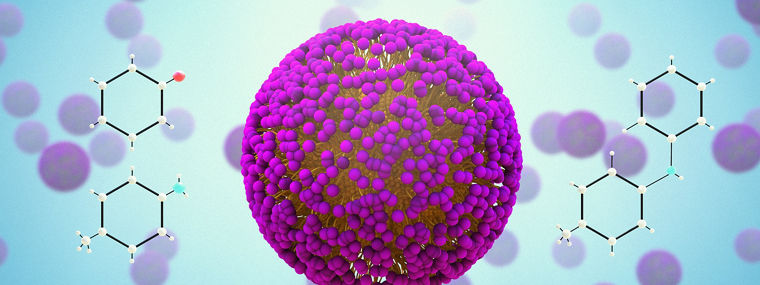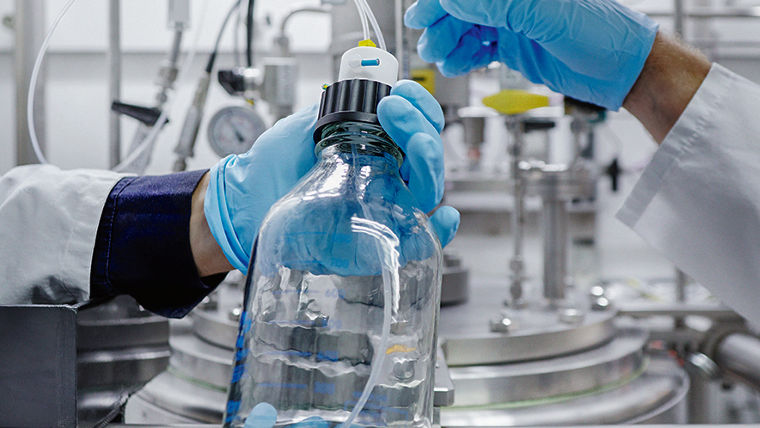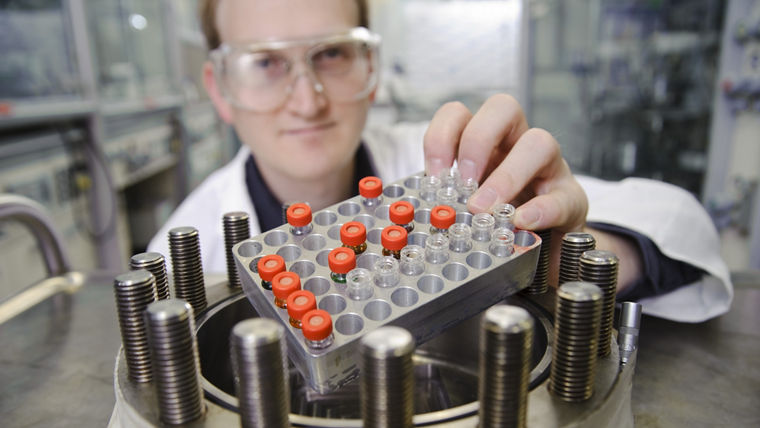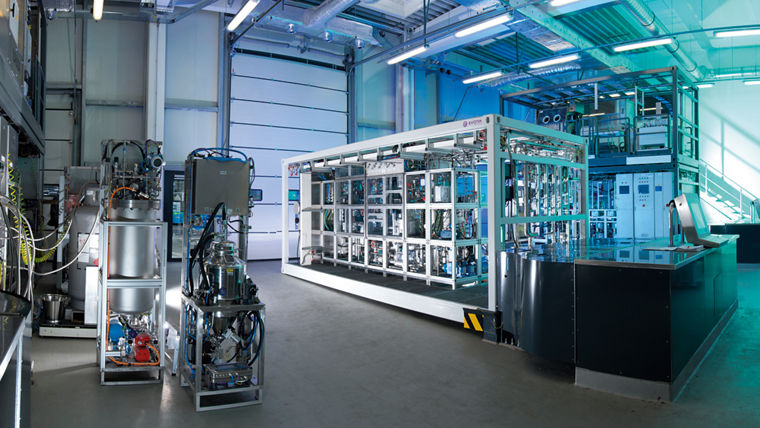Sustainable chemical synthesis: Reducing the footprint of chemical synthesis using the power of water
Chemistry in Water—also known as micellar chemistry—is a green chemistry technology that enables classical organic reactions to be performed in water instead of traditional organic solvents. This innovative method uses micelles—tiny surfactant-based nanoreactors—to carry out reactions that are typically solvent-intensive.
Evonik offers this technology at an industrial scale for the contract manufacturing of pharmaceutical intermediates and drug substances, based on pioneering work by Professor Bruce Lipshutz (University of California, Santa Barbara). The core surfactant, TPGS-750-M, is derived from Vitamin E and is fully removable below the Limit of Quantification (LOQ), ensuring clean, compliant processes.
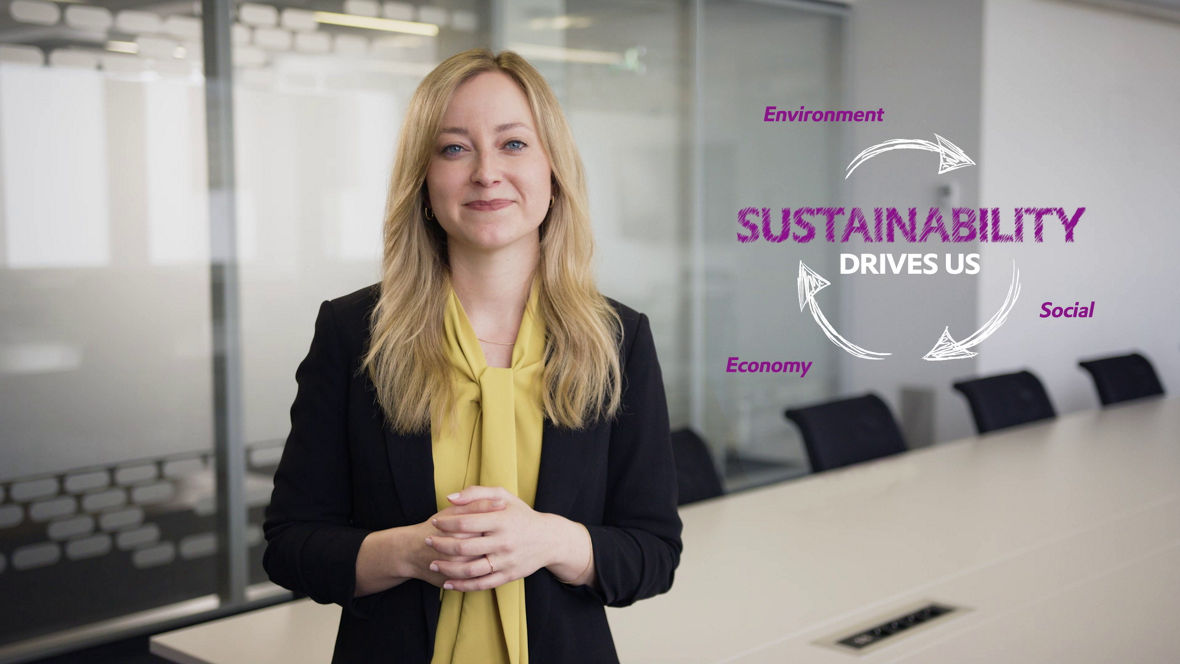
This website embeds YouTube videos. To load the YouTube player and view the video at this point, please first agree to the transfer of your personal data to Google. For more information, please see Evonik Privacy Policy
How Does Chemistry in Water Support Sustainable Synthesis?
By replacing organic solvents with water, Chemistry in Water significantly reduces the environmental footprint of chemical production. Key benefits include:
- Lower solvent use, resulting in less waste
- Reduced energy consumption due to milder reaction conditions
- Improved reaction performance, including higher yields and better selectivity
- Lower catalyst loading, which reduces cost and metal waste
- Shorter reaction sequences, minimizing processing steps and raw material use

This makes Chemistry in Water a powerful tool for companies seeking greener, more efficient outsourcing solutions for drug and chemical synthesis.
Proven Applications in Organic Synthesis
Chemistry in Water has been successfully applied to a wide range of reaction types, including:
- Suzuki–Miyaura couplings
- Stille and Heck couplings
- SNAr reactions
- Aryl aminations
- Amide bond formations
- C–H activations
- Peptide couplings
- Biocatalytic transformations
- Heterogeneous catalysis
Real-World Example 1: Buchwald–Hartwig Coupling in Water
- Solvent: Water + tBuOH (instead of dioxane)
- Catalyst loading reduced from 5 mol% to 1 mol%
- Reaction temperature lowered from 100 °C to 50 °C

Real World Example 2: Amide Coupling with In Situ Mixed Anhydride
- Solvent: Water (instead of 2-MeTHF)
- Improved regioselectivity—no pivaloyl byproduct
- No need for freebasing, simplifying the process

These examples demonstrate how Chemistry in Water can streamline synthesis while improving quality, efficiency, and sustainability.
A Valuable Addition to Evonik’s Portfolio of Technologies
Evonik is a fully integrated contract manufacturer with a broad portfolio of advanced technologies for drug substance production. Chemistry in Water complements our other capabilities, including:
- Continuous processing
- Biocatalysis and enzymatic chemistry
- PEGs and mPEGs
- Transition metal catalysis
- Organometallic and cryogenic chemistry
- Microbial fermentation
By combining these technologies, we help customers build robust, scalable, and sustainable supply chains for complex multi-step syntheses.
A Valuable Addition to Evonik’s Portfolio of Technologies
Evonik is a fully integrated contract manufacturer with a broad portfolio of advanced technologies for drug substance production. Chemistry in Water complements our other capabilities, including:
- Continuous processing
- Biocatalysis and enzymatic chemistry
- PEGs and mPEGs
- Transition metal catalysis
- Organometallic and cryogenic chemistry
- Microbial fermentation
By combining these technologies, we help customers build robust, scalable, and sustainable supply chains for complex multi-step syntheses.
Why Partner with Evonik?
Evonik offers:
- Proven experience in outsourcing sustainable chemical processes
- Industrial-scale implementation of micellar chemistry
- Expertise in regulatory-compliant drug substance manufacturing
- A global network of contract manufacturing sites
- A commitment to innovation and environmental responsibility
Whether you're developing a new drug, optimizing a chemical process, or looking to reduce your environmental impact, Evonik can help you achieve your goals with Chemistry in Water.
ANY QUESTIONS LEFT? JUST CONTACT US.
"Exploring options for the development and manufacture of your cGMP small molecule drug substance or associated intermediates? Reach out and we'll help you make well informed choices as Evonik aims at getting clients practical solutions faster and easier."
Eric Neuffer
Head of Drug Substance Sales

